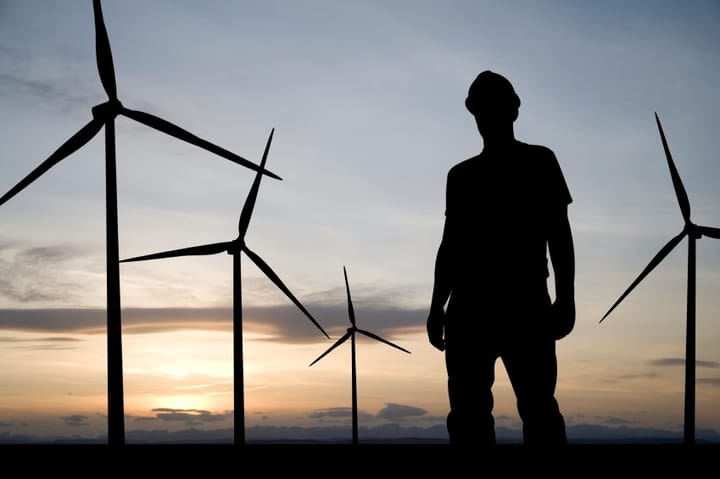Blue entrepreneurship

Blue entrepreneurship is about treating our marine environments better and in a more sustainable manner. It creates the opportunity to rethink how we manage resources and generate new economic and employment opportunities. Many local economies around the world rely on the blue economy for jobs and income.
Oceans are fundamental to our survival
Our oceans are in a terrible state. The oceans cover 70 per cent of our planet and are fundamental to the well-being of the biosphere and our survival. Yet, human impact has taken an enormous toll on the health of our oceans.
We affect the oceans by what we take out and what we put in. In the last 50 years, hundreds of millions of tons of fish and other creatures have been taken from the oceans. Meanwhile, hundreds of millions of tons of waste have been dumped into them.
The UN 2016 Global Integrated Marine Assessment puts it this way:
The impacts of humanity on the ocean are parts of our inheritance and future. They have helped to shape our present and will shape not only the future of the ocean and its biodiversity as an integral physical and biological system, but also the ability of the ocean to provide the services that we use now, that we will increasingly need to use in the future and that are vital to each of us and to human well-being overall.
Toward a sustainable ocean economy
Increasing public and government attention has been given to what has been called the ‘blue economy’. This concept emerged during the 2012 Rio+20 United Nations Conference on Sustainable Development. It recognises the need to maximise the enormous economic potential of the world’s oceans and the need to preserve this important natural resource:
‘A sustainable ocean economy emerges when economic activity is in balance with the long-term capacity of ocean ecosystems to support this activity and remain resilient and healthy’.
Earlier this year, the UN held the Oceans Conference to examine the solutions for reversing ‘the decline in the health of our ocean for people, planet and prosperity’.
The global ocean economy is valued at around US$1.5 trillion per annum, contributing approximately two-to-three per cent to the world’s GDP, according to a 2016 OECD study. Globally, approximately 350 million jobs are linked to the oceans through fishing, aquaculture, coastal and marine tourism, and research activities. Further, many ocean-based industries have the potential to outperform the growth of the global economy as a whole, including boosting employment. Over the next 15 years and through to 2030, the ocean economy could more than double its economic contribution to GDP.
The potential of the marine economies in many small-island developing states is much greater than their land economies. These states are now leading a range of new blue economic initiatives. In the Caribbean, for example, the World Bank estimates that Caribbean waters generated US$407 billion in 2012 alone.
Not a resource we can endlessly plunder
The economic value of the ocean underpins the whole concept of the blue economy. It increases the attention policymakers give to this topic. While this is a good thing, it should not be the only lens through which our oceans are understood and treated. One of the reasons we’re facing climate change and many other environmental problems is that we have treated our biosphere, including the oceans, as a resource we can endlessly plunder, pollute and mismanage. Even the idea we can effectively manage the ocean implies that we understand all we need to in order to extract from the ocean what we want. But this is a broader topic for another time.
The World Bank Caribbean report talks of the important need to ‘re-orient the long-standing conventional wisdom that largely focuses on estimating the costs and benefits of protecting’ our oceans. It also calls for a truer estimation of the ‘potential of the ocean as an economic space and engine for growth, while developing associated policies to better manage their sustainable use’.
The Economist Intelligence Unit describes how governments are playing a key role in driving growth in the blue economy and ‘turning to the ocean as a “new” source of jobs, innovation and competitive advantage’. While the ocean economy is diverse and growing, it ‘offers investors an opportunity to apply different strategies to ocean investments at various levels and scales’.
Blue economy as a driver of sustainable growth and development
The blue economy concept is about marine economic activity as a driver of sustainable growth and development.
Within this context, I am interested in the role entrepreneurs can play in redefining blue economic markets and coming up with better products, services and ways of working that reduce or even negate human and economic impact on the oceans.
In their 2007 paper on sustainable entrepreneurship, Thomas Dean and Jeffery McMullen in the United States describe the role entrepreneurship can play in reducing environmental degradation. They show how ‘intelligent public policy’ enables sustainable entrepreneurship and how the ‘innovative power of entrepreneurship’ can be ‘captured to build a sustainable world’.
Similarly, Stefan Schaltegger and Marcus Wagner in Germany in their 2011 paper on Sustainable Entrepreneurship and Sustainability Innovation define sustainable entrepreneurship as the ‘realisation of sustainability innovations’. They describe the work of ‘bioneers’––a term combining ‘bio’ and ‘pioneers’––who ‘focus on attractive market niches with their customer-focused eco products’. While a bioneer may invent a new bio product or service, entrepreneurs––or ‘ecopreneurs’––‘search for inventions that they can place on markets to create turnover and influence market structures’.
The blue economy requires government action
Realising the opportunities for entrepreneurship to drive change in the blue economy requires government action at several levels.
First, a policy framework is required to combine economic and environment concerns, setting limits, but also opening the door for a transition to more sustainable market system. This requires in integrated policy system in which multiple objectives are coordinated and re-balanced over time.
Second, government laws and regulations should change the incentives and reward system to make it more costly to behave in unsustainable ways and more enticing to shift toward sustainable business practices. Desirée Pacheco, Thomas Dean and David Payne in the United States described these challenges in their 2010 paper on Escaping the Green Prison. They show how this goes beyond environmental protection legislation to include industry standards, property rights and government legislation, such as taxation.
Third, improving entrepreneurial networks and information. Pacheco and her colleagues describe how entrepreneurs can engage in networks and collective action to open up new opportunities for sustainable entrepreneurship. An interesting example comes from the World Intellectual Property Organisation (WIPO). In 2013, WIPO launched WIPO GREEN as an online database and network that connects owners of new technologies with individuals or companies who might be looking to commercialise, license or otherwise distribute a green technology. Thus, WIPO GREEN seeks to accelerate innovation and the diffusion of green technologies, while contributing to the efforts of developing countries in addressing climate change.
Governments and markets
Markets are powerful forces influencing the behaviours of entrepreneurs and customers alike. To operate effectively, markets require good policies, laws and regulations. And to create the kinds of transitions we want toward a more sustainable economy, governments must reconfigure their policy, legal and regulatory settings to change current practices and develop new markets.


